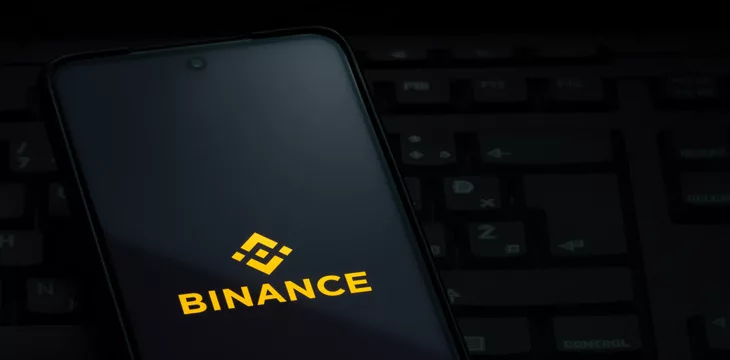|
Getting your Trinity Audio player ready...
|
Yet another ‘crypto’ advocacy group has come out of the woodwork to complain about the U.S. Securities and Exchange Commission’s (SEC) enforcement activity: this time, the Chamber of Digital Commerce, who filed an amicus brief in the SEC’s case against Binance and Changpeng Zhao urging the court to dismiss the SEC’s case because it says the regulator does not have jurisdiction to oversee digital assets.
Binance and CZ are accused of operating unregistered exchanges, broker-dealers, and clearing agencies; misrepresenting the level of oversight on Binance’s U.S. platform; and the unregistered offer and sale of securities.
The Chamber of Digital Commerce packed in the usual complaints about the SEC ‘overreaching’ and adopting a ‘regulation by enforcement’ approach. It complains that such an approach deprives the U.S. of business, echoing language used in a recent cynical push from industry delinquents to get regulators off its back.
The core thrust of the Chamber brief, however, is the contention that the SEC’s case seeks to ‘collapse the distinction between an investment contract itself and the underlying subject of that contract,’ asserting that a company like Binance is in no different position than a grocer selling oranges.
“Whether or not a token was initially sold as part of an ‘investment contract’ is of no consequence. That token alone, when sold on a secondary market between anonymous market participants in blind bid/ask transactions, is not an investment contract.”
This is a fundamental misunderstanding of U.S. securities laws and the SEC’s case against Binance (and similarly non-compliant exchanges). The Chamber here incorrectly reads into Howey a requirement that the offer and sale must form part of the same transaction.
In reality, courts have interpreted the Howey ‘investment contract’ analysis widely, finding that investment contracts exist where there is no contract between the offeror and purchaser. They have also taken a broad view of each transaction, focusing on the promises made by the offeror and the reasonable expectation they created in the purchaser—no matter how many intermediaries exist between the two.
If an issuer promises that proceeds will go toward the development of their network (thus increasing the value of the ecosystem, coins and all), then purchasers of these coins—even if the transaction takes place on an exchange—would still have done so with the reasonable expectation that their investment will ultimately increase the value of the network.
Recently, this was explicitly recognized in the U.S. in the SEC’s case against Terraform Labs:
“[T]he court declines to draw a distinction between these coins based on their manner of sale, such that coins sold directly to institutional investors are considered securities and those sold through secondary market transactions to retail investors are not.”
“Howey makes no such distinction between purchasers. And it makes good sense that it did not. That a purchaser bought the coins directly from the defendants or, instead, in a secondary resale transaction has no impact on whether a reasonable individual would objectively view the defendants’ actions and statements as evincing a promise of profits based on their efforts.”
On that basis, the SEC is not seeking to collapse the distinction between an investment contract and the underlying asset at all. It is argued that the ‘investment contract’ is comprised of everything from the initial offer from the issuer (including the promises that funds raised would be deployed toward improving the overall project) right through to an individual purchasing the asset on an exchange.
At that point, Binance is guilty as charged: once it is accepted that an ‘investment contract’ and thus a security is being offered on Binance’s platform, then it becomes guilty of operating as an unregistered securities dealer.
Amicus briefs are intended to keep the gravy train running
The many amicus curiae briefs that get submitted against the SEC by ‘crypto’ advocacy groups inevitably feed off one another: arguments made by the likes of Binance and its apologists get picked up by Senators and Congresspeople and recycled into their own anti-regulation agendas. This, in turn, gets fed back into the next amicus curiae brief, giving the impression that the SEC is going against nearly unanimous opposition instead of the loud complaints of a circle of highly invested (read: profit-motivated) individuals and companies.
But it’s somewhat surprising that digital asset interest groups are still willing to come to Binance’s defense. The many politicians and companies that propped up and defended FTX and the Sam Bankman-Fried scam were caught with egg on their faces when the FTX fraud could no longer sustain itself, and the shocking misuse of customer assets was laid bare for all to see. One would think that the industry would have learned to be more cautious about companies facing multiple investigations from law enforcement and regulators, but not so far from the Chamber of Digital Commerce, apparently.
This is particularly startling given the severity of the allegations against Binance. In addition to its securities violations, Binance has become a hotbed for terrorist financing and money laundering, and Binance’s fast-and-loose attitude to the law enabled millions of dollars to pass through Hamas-linked accounts on its platform. Binance apparently closed a swathe of these accounts in response to Israel’s enforcement actions, but a Commodity Futures Trading Commission lawsuit filed in March shows that Binance knew about Hamas-related transactions since at least 2019.
On the other hand, the industry’s continued willingness to rush to the aid of its most flagrant law-breakers does make the motivations clear: it isn’t about protecting America’s economy, and it isn’t about good regulation or even bad regulation—it’s about making sure there is no regulation, no matter the societal costs. The gravy train must keep chugging.
Follow CoinGeek’s Crypto Crime Cartel series, which delves into the stream of group—from BitMEX to Binance, Bitcoin.com, Blockstream, ShapeShift, Coinbase, Ripple,
Ethereum, FTX and Tether—who have co-opted the digital asset revolution and turned the industry into a minefield for naïve (and even experienced) players in the market.

 02-21-2026
02-21-2026 




